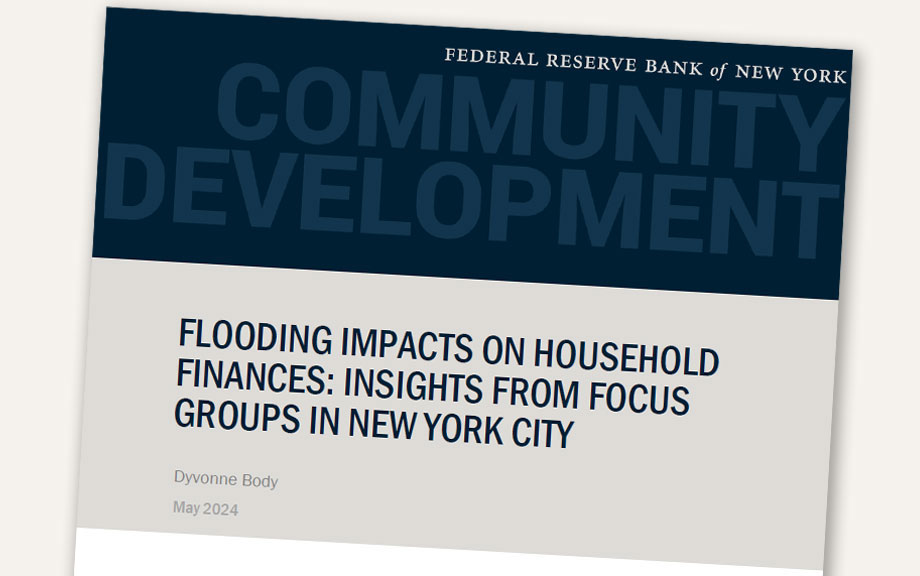
The New York Fed’s Community Development team promotes economic growth and financial stability for low- and moderate-income communities and individuals. Its latest white paper, “Flooding Impacts on Household Finances: Insights from Focus Groups in New York City,” draws from focus groups the New York Fed’s Community Development team conducted in 2023 with 31 New York City residents whose homes have flooded.
The report found that most renters reported having no renters’ insurance to cover the cost of lost clothes, furniture, or equipment. No focus group participants reported receiving payment from renters’ insurance after experiencing flooding. Additionally, no participants reported being offered or receiving public disaster assistance following a flood.
Separate New York Fed research has found that approximately one in ten low- to moderate-income people, immigrants, and racial and ethnic minorities in New York City live in a flood-prone census tract. The New York Fed’s Community Development team conducted these focus groups to help improve estimates of the typical financial impact of flooding, including property loss and repairs, lost labor hours, and health impacts.
The white paper found that the most consequential flooding effects were on housing safety and stability. In addition to water damage and lost possessions, worsened mental and physical health are key consequences of flooding. The report also found that recovery in the aftermath of flooding can be costly, isolating, and time consuming.
“The people we spoke with who have experienced flooding reported everything from depression to homelessness,” said Dyvonne Body, the report’s author. “The financial supports they told us would protect others in flood-prone communities include adequate insurance, emergency grant assistance to replace lost income, and a grace period for debt repayment.”
Among the other key findings:
- Economic barriers, including housing affordability, prevent some residents from moving to higher ground. Positive community connections also keep residents in their neighborhoods despite higher flood risk.
- Residents were highly dependent on friends, family, volunteers, and local nonprofit organizations for aid and assistance after flooding.
- Residents who lived alone or lacked strong social ties to their community felt a general sense of loneliness in these circumstances, not knowing where to find assistance and navigating an opaque relief structure on their own.
“The focus groups conducted by the New York Fed’s Community Development team provide a nuanced understanding of flooding impacts on residents and their experiences with housing safety and stability, time burdens, and material losses,” the report concluded. “Residents were not prepared to manage the costs of damages and repairs after flooding while navigating opaque relief structures.”











